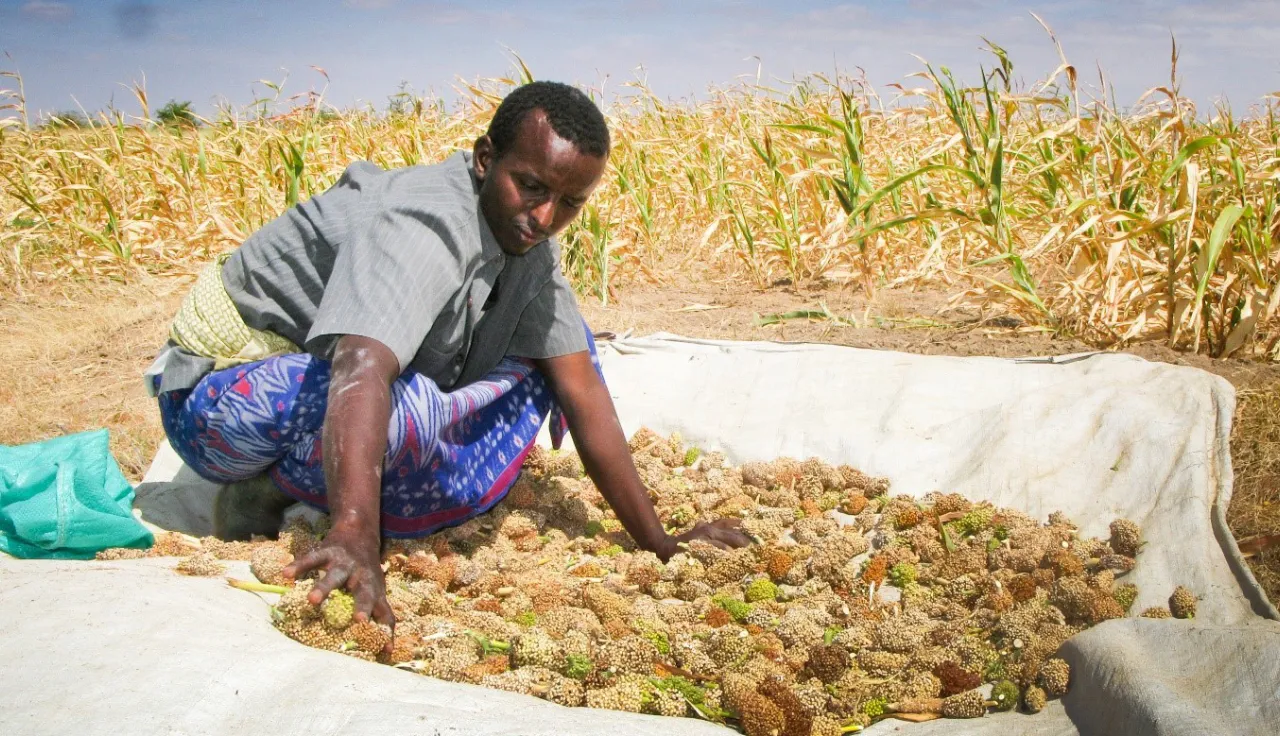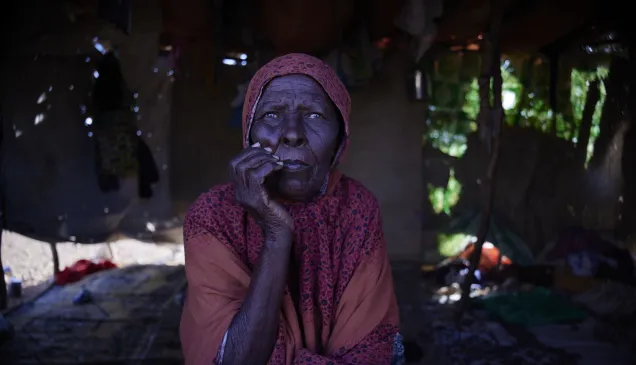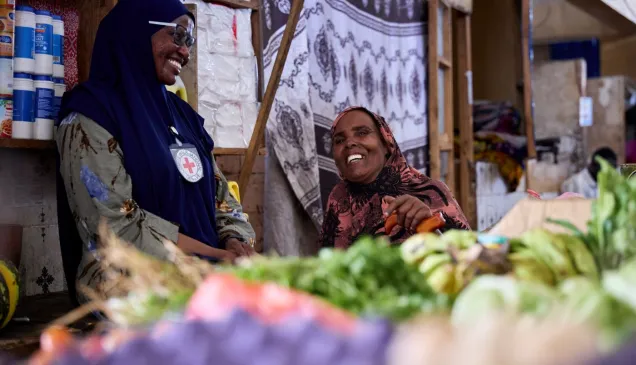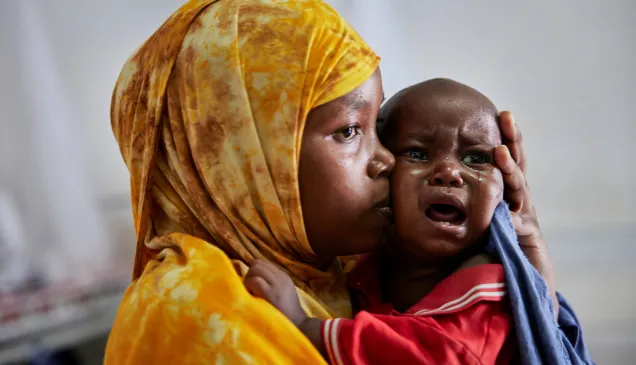Somalia: Towards self-reliance with farming cooperatives

In a small rural village near Beletweyne, Somalia, families rely on a cooperative project to grow and harvest sorghum and sesame through the use of community-owned farm equipment. Sharing such vital resources is a way of life in the country.
Abdullahi Osman couldn't find a steady job for 20 years following Somalia's 1992 civil war. Today, with the assistance of the ICRC, he has a different story to tell. The 55-year-old has joined a farming cooperative that has enabled him to provide for his family.
In the village of Bacaad, where Abdullahi lives, traditional stick-and-grass huts sit among maize and sorghum fields. Most families living there survive as farmers and pastoralists. The morning sun brings the sounds of camel and goat herds shuffling towards the river.
However, life took a different turn for the father of three. Before the civil war, Abdullahi was stable, running a farm in Jowhaar town. Life took a turn for the worse as he had to leave his stable life in Jowhar and take up residence in Bacaad village as a result of the conflict.
Family stepped in to help
With no steady income, Abdullahi would seek support from his uncles who ran kiosks in the village.
"I might return home with something, other times I was not as lucky," he recalls.
His uncles were familiar with the employment environment and helped him gain an independent livelihood. They introduced him to a group of people who were planning to share a piece of farmland between them and pledged to help him raise the required funds for registration.

Abdullahi Osman harvests his sorghum in Bacaad, Somalia. With proceeds from sorghum and sesame, he can now afford three meals a day. CC BY-NC-ND/ICRC/Miraj Mohamud
"I am grateful to my uncles. They helped me raise the 120 USD membership fee so I could be among the owners of the piece of land," he says.
Cooperative challenge
Weather conditions in the region favour farming, but the 115-member cooperative faced a challenge in ploughing the tracts of land. There weren't any tractors available in the village and renting one from the nearby town of Beletweyne would cost 50 USD per hour.
"We could not afford to spend that money and instead we decided to use our hands to plough. This cost us time and energy. It was tiresome," Abdullahi explains.
In April 2015, ICRC supported 16 cooperative societies in Somalia with a tractor each.
Bacaad cooperative society was one of the recipients. In addition, the cooperative also received training for the farmers on business, planning, data collection and goal setting.
Today Abdullahi sells sorghum and sesame and can afford three meals a day. His last harvest on January 2016 produced 20 sacks of sorghum and another 10 of sesame.
"I have gained a lot from the training. Now my plan for the little income is to purchase extra land for farming and God willing I will relocate to a town so I can take my son to school," he says.
Dusan Vokotic, in charge of ICRC's livelihood support programme in Somalia, is optimistic that communities are becoming increasingly self-reliant.
"Support to local cooperatives by providing farming machinery and training for the farmers will enable them increase their yield. This helps smooth out seasonal variations of food supplies for the community as a whole," says Vukotic.
In 2015, the ICRC helped more than 38,000 people in Somalia by providing tractors and farm tools.

A tractor ploughs a field in Bacaad, Beletweyne, Somalia. The tractor is one of the 32 handed over to cooperative societies in Somalia with the aim of supporting farming within communities. CC BY-NC-ND/ICRC/Miraj Mohamud



